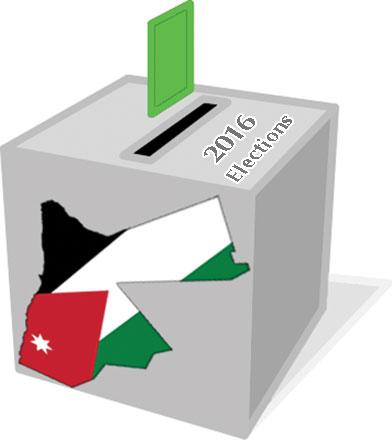You are here
Tribal loyalties tested in prelude to parliamentary polls — observers
By Rana Husseini - Sep 09,2020 - Last updated at Sep 09,2020
AMMAN — Election analysts and observers on Tuesday said that election results in Jordan this year might be weakened by what is termed as “tribal elections”.
The tribal elections, according to observers, is when a certain tribe or a large family decides "to hold their internal elections to decide on a candidate, usually a male, to be their sole representative in the upcoming elections, even if a candidate from the same clan decides to run for elections, which limits the chances of others to compete in a fair manner”.
“We are already noticing that families and tribes are already holding internal elections to name their candidates even before the door is opened for registration,” an election observer, who preferred not to be identified, told The Jordan Times.
Tribal and geographical considerations will continue to be "the decisive factor" in this election as was the case in the previous elections, the observer added.
Anthropologist Ahmad Abu Khalil added that electing candidates based on their programmes and visions will still need more time to mature in Jordan, especially in areas outside the capital.
“Even though there are lists now for candidates, people are still dealing with the new election law as the one that was introduced in 1993, the one-person, one-vote system,” Abu Khalil told The Jordan Times.
He added that individuals wishing to run for elections will always find ways to "adjust their tactics based on the updated election law and work their way around it to serve their interests and those of their constituencies”.
“Even if there is a list, voters have the choice to choose one candidate from the list, and this is what usually happens, which in a way weakens the results of the elections,” Abu Khalil noted.
However, Abu Khalil added that “it will take some time for people in Jordan to eventually select their representatives in the Lower House according to their platforms rather than the tribal affiliation”.
Under the 2015 Elections Law, voting is based on the open proportional list at the district level.
The law stipulates that each list should include no fewer than three candidates and no more than the number of seats allocated for the constituency in which the list is competing.
Under the proportional electoral system, winning lists will be allocated seats according to the percentage of votes they received. The seats will be distributed to the members with the most votes.
The Independent Election Commission (IEC) Spokesperson Jihad Momani told The Jordan Times that the commission “has nothing to do with the tribal elections”.
“The commission has no opinion in the tribal elections nor can it interfere in the internal elections taking place now. We cannot control if certain tribes hold internal elections to choose a certain candidate. It is something that we do not support or encourage,” Momani added.
Meanwhile, Minister of Political and Parliamentary Affairs Musa Maaytah on Sunday reaffirmed the government’s commitment to secure the success of the upcoming Parliamentary elections by involving all citizens in the election process.
“We would like to emphasise that Parliament is the most important Constitutional body, whose role is to monitor the government’s performance and draft laws,” Maaytah had told The Jordan Times.
“The government is aiming through its many campaigns to target everyone, including youth, to take part in the upcoming elections on November 10,” the minister added.
The IEC official said that the commission assigned October 6, 7, and 8 as the designated dates for individuals to officially register to run for the elections.
Related Articles
AMMAN — Minister of Political and Parliamentary Affairs Musa Maaytah on Wednesday said the government is keen to ensure the success of the u
AMMAN — Despite electoral reforms, some candidates in the northern governorates say they are still struggling to form or join lists for the
AMMAN – Tribal and geographical considerations will continue to have a strong influence on Jordanians' voting decisions in the September 20
















